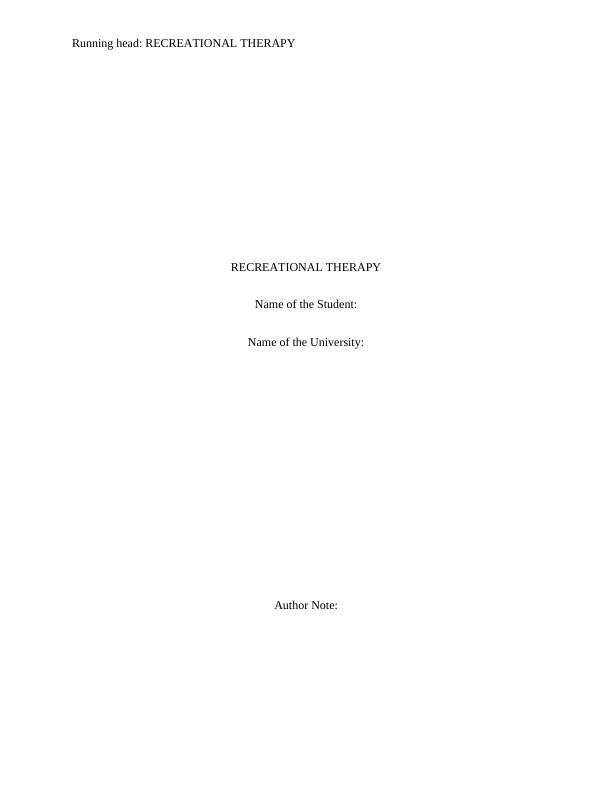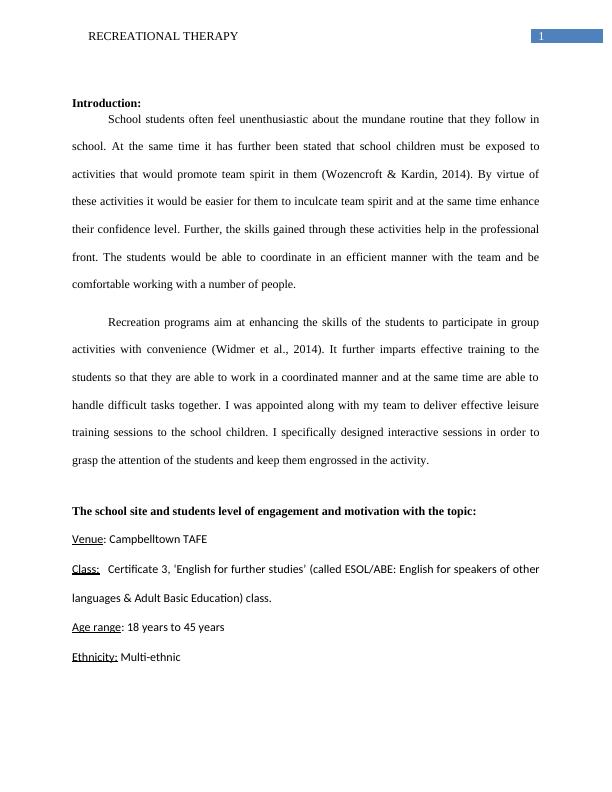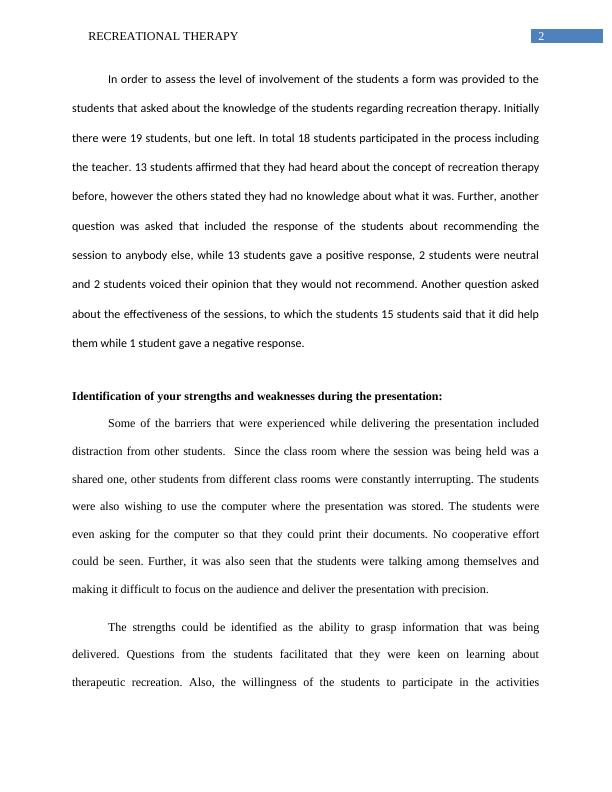Recreational Therapy for School Students: Benefits and Challenges
Presenting a session on the Therapeutic Recreation program and its benefits, including activities to demonstrate TR techniques.
9 Pages2434 Words61 Views
Added on 2023-06-03
About This Document
Recreational therapy can help school students enhance their team spirit and confidence level. Interactive sessions can help them learn new skills and work in a coordinated manner. However, distractions and lack of support from school administration can pose challenges.
Recreational Therapy for School Students: Benefits and Challenges
Presenting a session on the Therapeutic Recreation program and its benefits, including activities to demonstrate TR techniques.
Added on 2023-06-03
ShareRelated Documents
End of preview
Want to access all the pages? Upload your documents or become a member.
SWSP2033 - Social Work Theory and Practice
|8
|1759
|55
Functional Assessment Interview
|4
|904
|54
The School of the Future
|5
|1032
|443
RACISM AND SOCIAL CLASSES AFFECTING YOUTHS IN SPORTS
|9
|2329
|19
ENGLISH. English Assignment. Student Name.
|6
|1378
|22
Analyzing Organizational Behavior Principles of Voice of Calvary Ministries
|8
|1374
|103



